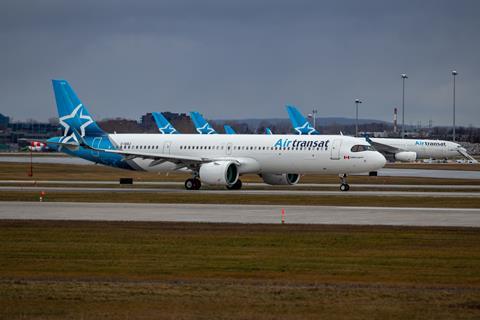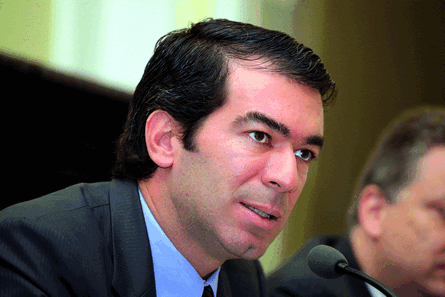The European Commission (EC) has put the brakes on Air Canada’s planned acquisition of Transat AT, the parent of Air Transat, leading the companies to call off the deal completely.
Both Air Canada and Transat expressed frustration at the drawn-out process and the conditions which the EC had imposed, with Air Canada calling the EC’s demands “onerous”, and “beyond commercially reasonable”.
The deal required EC approval, in addition to other jurisdictions, as the airlines planned to continue to operate flights between Canada and the European Union.
“Air Canada offered and enhanced a significant package of remedies, which went beyond the commercially reasonable efforts required of Air Canada under the arrangement agreement and what has been traditionally accepted by the EC in previous airline merger cases,” Air Canada says on 2 April.

The EC had repeatedly delayed approving the deal, asking for further information and documents, as well as accommodations to ensure competition on transatlantic air travel routes would be preserved.
“After careful consideration, Air Canada has concluded that providing additional, onerous remedies, which may still not secure an EC approval, would significantly compromise Air Canada’s ability to compete internationally, negatively impacting customers, other stakeholders and future prospects as it recovers and rebuilds from the impact of the Covid-19 pandemic.”
Transat’s chief executive Jean-Marc Eustache adds on 2 April, “Air Canada reached its limit in terms of concessions it was willing to provide the European Commission to satisfy their competition law concerns”.
“While both companies expected the proposed transaction to result in compelling benefits to shareholders, customers and other stakeholders, and even though we had received approval from the Canadian authorities, it has now become evident that we would not obtain the approval of the European Commission,” Transat’s Eustache says.
Air Canada will pay a “termination” fee of $12.5 million to Transat, with no further obligations from either side.
The marriage of Canada’s number one and number three airlines, both headquartered in Montreal, was presented in 2019, with the companies expecting the deal to close in mid-2020. But after the coronavirus pandemic brought global air traffic to a near-standstill, causing the industry to nosedive, they were forced to delay several times.
Transat’s shareholders initially approved the acquisition by its cross-town rival in August 2019, and a second time in December 2020, after Air Canada reduced its offer to C$5 ($3.98) per share, from C$18 per share,
The Canadian cabinet gave the deal the go-ahead in early February, subject to several conditions, including job assurances, a commitment to maintain the airline’s aircraft in Canada (preferably in Quebec), the launch of new destinations within five years and what the government called “a price-monitoring mechanism”.
But the EC had still not approved the acquisition by the time the terms of the deal expired on 15 February. After that so-called “outside date”, either side was permitted to terminate the agreement at any time, no questions asked.
During Transat’s fiscal first-quarter earnings call on 11 March, the holiday specialist said it was working on a “plan B” that would enable it to stand alone in case the deal fell through.
In January, Canadian billionaire investor Pierre Karl Peladeau had made overtures to Transat, allegedly offering more than Air Canada’s $5 per share. At the time, Transat rejected it outright, calling it a public relations ploy.
Now, the airline says it will consider other proposals.
“Now that Transat is no longer constrained by the limitations under the arrangement agreement, we are free to take the necessary steps to ensure a successful, long-term future, beginning by securing long-term financing to provide Transat with the flexibility to deliver on its strategic plan,” Eustache says.
Transat has suspended all operations due to ongoing travel restrictions in Canada intended to mitigate the spread of the highly contagious coronavirus. The airline said in March that it expects to restart flights on 14 June, coinciding with the beginning of the summer vacation travel season.
Canada has had some of the strictest travel rules in place for more than a year. All inbound passengers from abroad are subject to a mandatory 14-day quarantine – the first three days of which must be spent at a government-authorised hotel at guests’ expense – and undergo repeated testing.
In January, the Canadian government asked all of its country’s airlines to temporarily suspend flights to southern beach and resort destinations in Mexico and the Caribbean – popular with Canadians during the country’s long, harsh winter. That move devastated carriers’ usually lucrative spring break business, affecting Transat particularly hard.


























